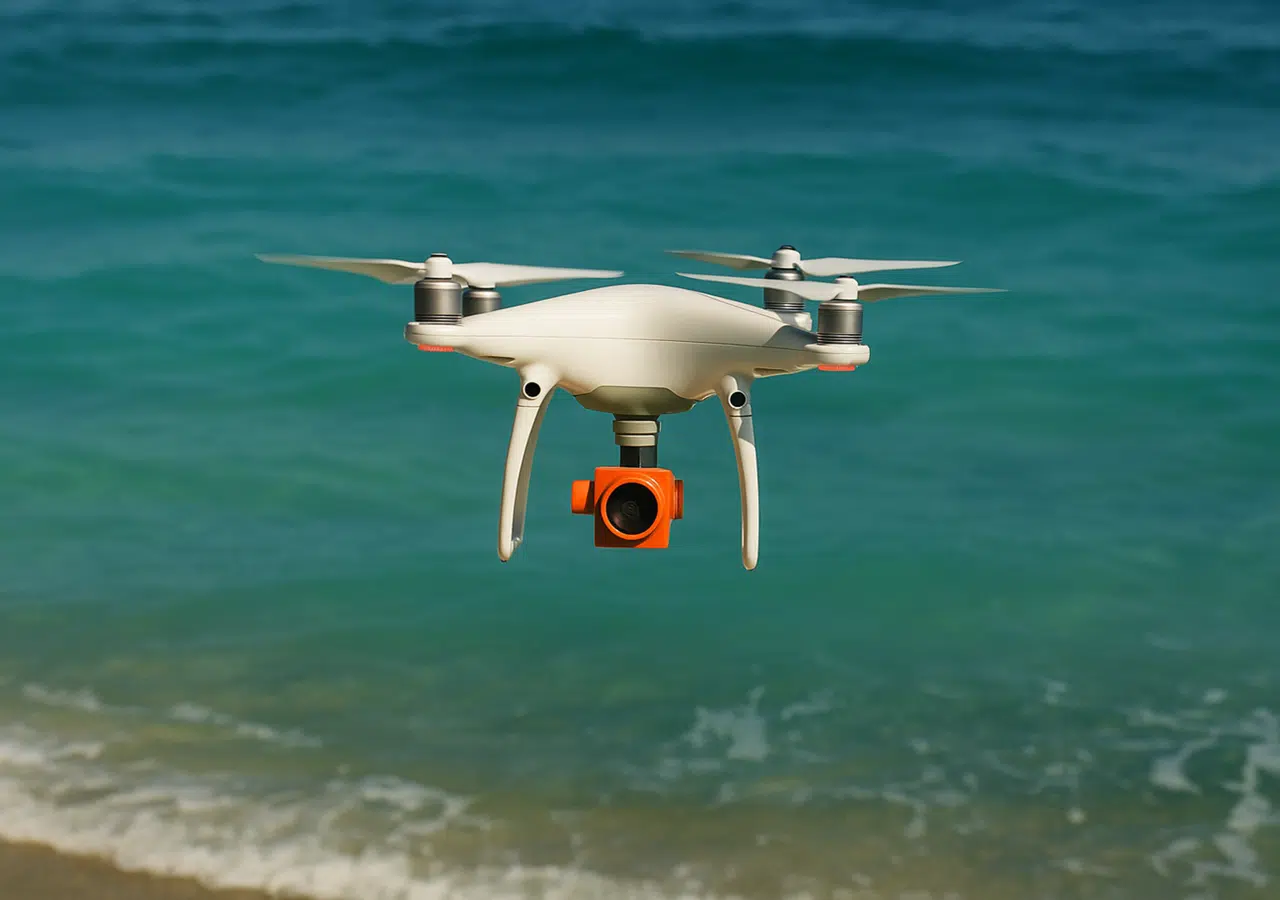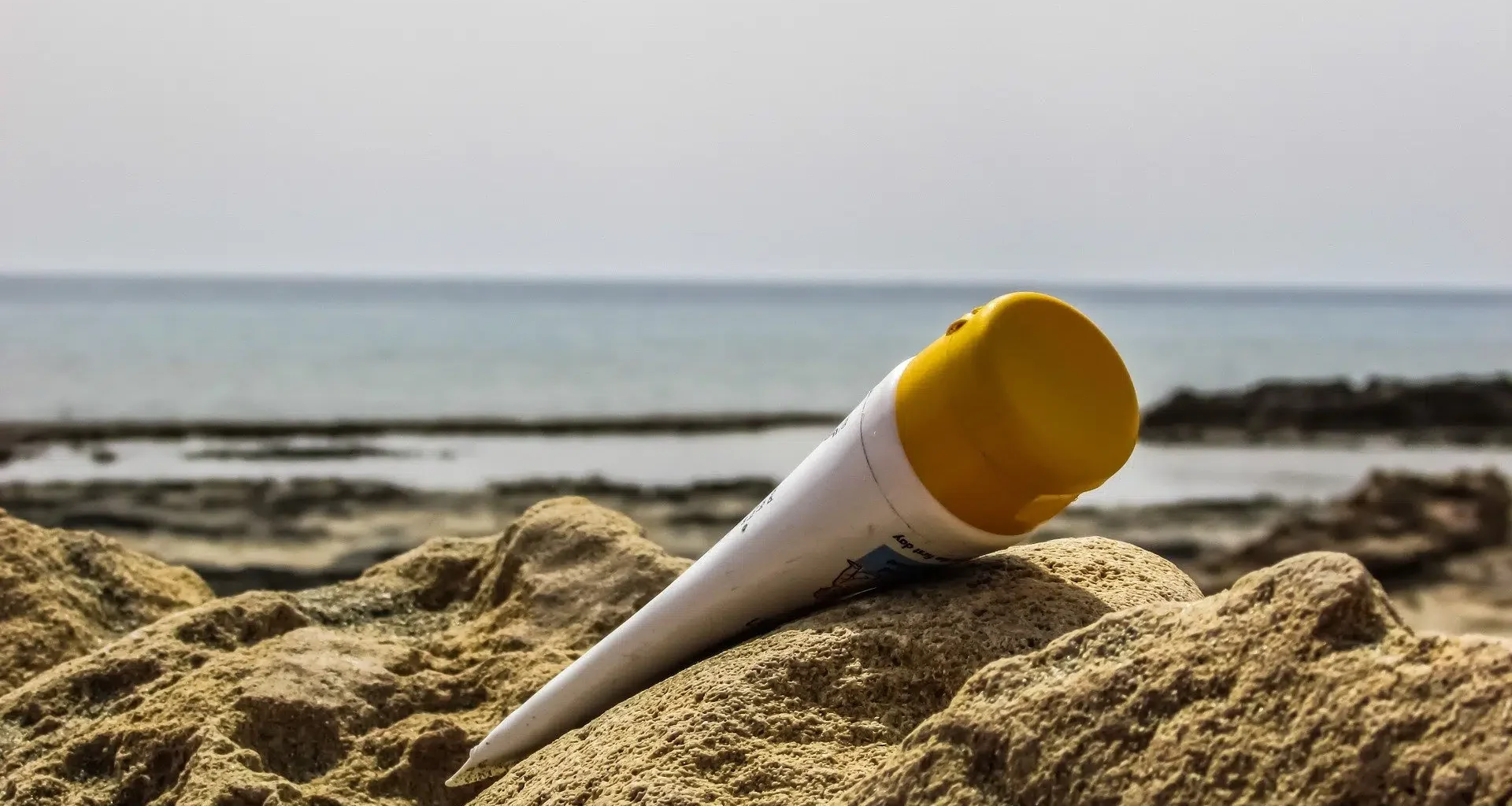A team of researchers from ICMAN-CSIC in Spain has developed a pioneering technology that allows the detection of harmful concentrations of sunscreen in the sea using drones equipped with UV spectrophotometers.
This innovation aims to evaluate the impact of sunscreens on marine ecosystems and advance towards a coastal environmental index that guides beach management with an ecosystemic approach.
Sunscreens: allies for human health, threat to marine health
Although the use of sunscreens is essential to prevent skin diseases, many creams contain chemical compounds that severely affect the marine ecosystem. These UV filters, considered emerging pollutants, reach the ocean by the ton every summer and are not retained by conventional purification systems.
“Ecotoxicology is revealing how complete formulations, not just isolated ingredients, can alter environmental toxicity,” the researchers explain.
Sunscreen-Index: protocols for more responsible cosmetics
The Sunscreen-Index project proposes to environmentally evaluate solar products from their design, considering:
- Real mixtures and not just individual ingredients
- Environmental conditions such as temperature and UV radiation
- Complete life cycles of marine organisms
This approach allows for the detection of sublethal and cumulative effects, defining more precise risk thresholds and guiding cosmetic reformulations without compromising photoprotective efficacy.
 sunscreen
sunscreen
Barriers to standardization and regulatory challenges
The lack of collaboration from the sector, the diversity of compositions among brands, and a less demanding European labeling make it difficult to compare products.
Moreover, sustainability claims on packaging do not always reflect the real composition of the creams.
TurisDron: drones for coastal environmental monitoring
The TurisDron project integrates this technology into a beach quality index, combining variables such as:
- Sunscreens
- Microplastics and heavy metals
- Density of bathers and human pressure
The key component is the miniaturized UV spectrophotometer (SEN2SUNSCREENS), capable of identifying the spectral signature of sunscreens from the air. Tests conducted in La Caleta and Camposoto (Cádiz) confirmed its effectiveness in real conditions.
Coastal management with data: from point diagnosis to operational surveillance
TurisDron proposes a traffic light-type panel that condenses the ecological state of the water and alerts when critical limits are exceeded. The tools are designed for direct use by municipal managers, with standardized protocols for:
- Flight and sampling
- Calibration and reporting
- Interpretation and decision-making
This will allow for comparing beaches and seasons, prioritizing investments, and adjusting usage loads in sensitive areas.
One Ocean, One Health: connecting ocean health with human health
The entire project is framed within the One Ocean, One Health approach, which recognizes the interdependence between the health of marine ecosystems and human health. Drones expand the reach of these technologies, offering critical information to preserve the ecological quality of our coasts.
With this initiative, science provides a concrete tool for coastal management to monitor invisible pollutants, guide public policies, and promote more responsible cosmetics, without giving up sun protection. It is a key step towards sustainable tourism and marine conservation based on evidence.
